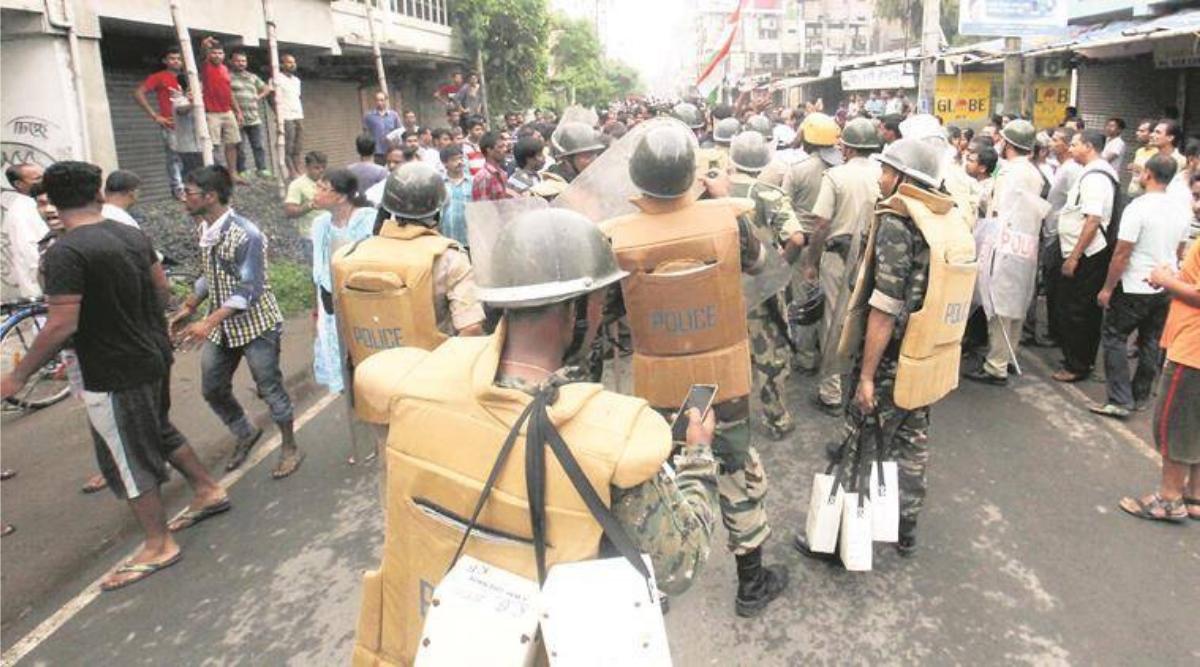May 24, 2021 7:46:49 pm
 Such an individual assessment appears to have been by-passed wholesale by the MHA, ostensibly on the basis of the post-poll violence in Bengal.
Such an individual assessment appears to have been by-passed wholesale by the MHA, ostensibly on the basis of the post-poll violence in Bengal. Written by Shourya Dasgupta
The recent decision of the ministry of home affairs to accord “X” category personal security to 61 BJP MLAs in West Bengal is unprecedented. Since 16 other MLAs already had central security under various categories, all 77 BJP MLAs in West Bengal now stand to become recipients of central security cover. This warrants serious scrutiny.
It is no secret that providing security cover has long been used for political ends. Indeed, it is often a marker of how close one is to the powers that be. However, such decisions have hitherto been justified in terms of an assessment of a threat posed to the protectee as an “individual”. Providing security en masse on the basis of a “general threat” to members of a political party does away completely with this procedure. Not only is this highly unusual, it is probably illegal as well.
In the first place, the MHA’s decision runs counter to its own policy of providing protection to individuals. High constitutional functionaries such as the President, Vice-President, Prime Minister and Chief Ministers receive protection by virtue of the position they hold. The same does not, however, apply for MPs and MLAs. Their protection is based only on an assessment of the threat perception against them as individuals. The rules governing this are set out in an MHA manual titled called “Security arrangements for the protection of individuals” (rather mysteriously abbreviated as the “Yellow Book”). In 2015, in response to a question in the Rajya Sabha, the then MoS-Home Haribhai Chaudhary reiterated this, stating that security cover to individuals, including MPs, was provided only on the basis of individual threat perception.
Such an individual assessment appears to have been by-passed wholesale by the MHA, ostensibly on the basis of the post-poll violence in Bengal. While the post-poll violence may be undeniable, it still does not justify providing central security to all BJP MLAs, regardless of any specific threat to them as individuals. To do so runs dangerously close to treating the BJP as a “class” in and of itself. Indeed, the MHA is not even in a position to quibble that its order aims to protect the political opposition in West Bengal and not the BJP— for the lone opposition MLA from the Indian Secular Front appears to have been left out.
The MHA’s decision also has negative implications for federalism. The constitutional scheme recognises “public order” and “police” as subjects that are the domain of the state government. It follows that security should ordinarily be viewed as a corollary of these, at least in the absence of a threat from militants or terrorist organisations or criminal gangs having a national/international presence. Interestingly, this appears to be the view of the MHA as well. The MHA website records that it is “primarily” the responsibility of the state government to provide security to a person living under its jurisdiction.
The MLAs in question all live and perform public functions out of West Bengal — there is, strictly speaking, no “national” element to their functioning. There also does not appear to be any report of them being specifically targeted by terrorists or gangs. If this is the case, what is the basis of the MHA’s decision? Why was it compelled to make an exception to the general rule that it was West Bengal’s responsibility to provide the MLAs with security cover?
Police forces, including central forces such as the CRPF and the CISF, are a national resource, funded by the taxpayer. At a time when they could potentially be put to much better use, particularly in the fight against Covid-19, the MHA’s decision to use them as private security for the ruling party’s MLAs deserves the strongest censure. Not so long ago, the government got rid of blanket SPG protection for members of the Gandhi family. It argued, quite correctly, that mere membership of a family could not be the basis for providing SPG security, if it was not warranted by an assessment of the threat against them. It should now demonstrate some consistency, and withdraw this deeply flawed decision.
The writer is an advocate practising in Delhi
- The Indian Express website has been rated GREEN for its credibility and trustworthiness by Newsguard, a global service that rates news sources for their journalistic standards.

